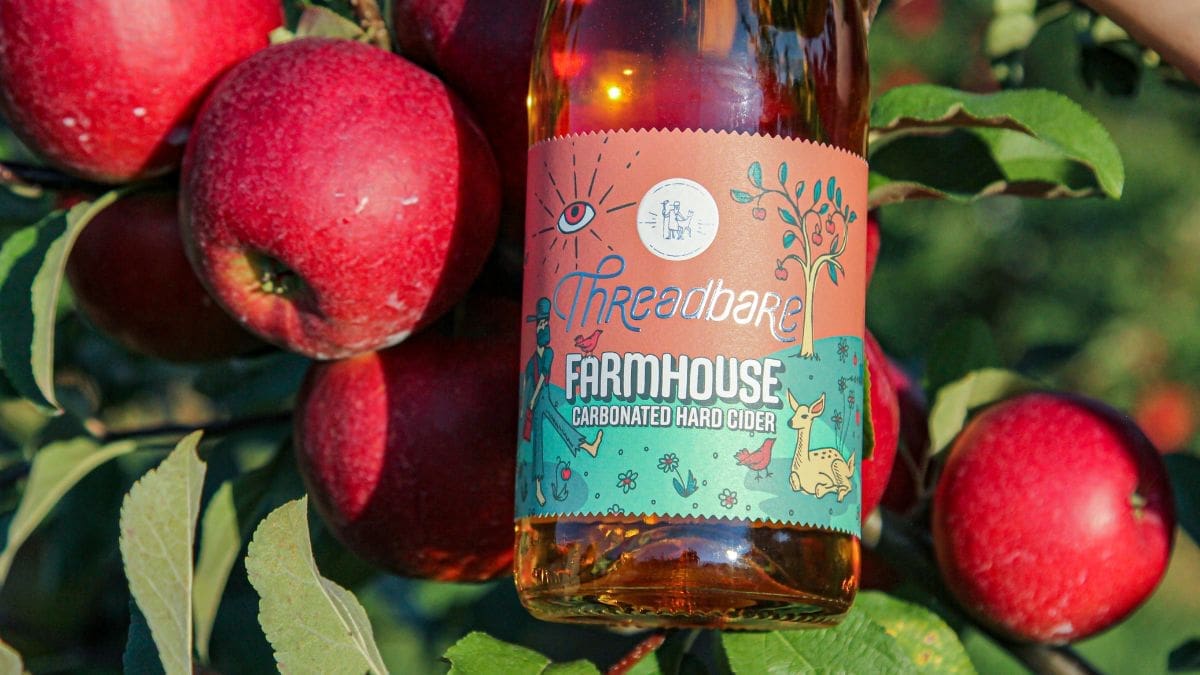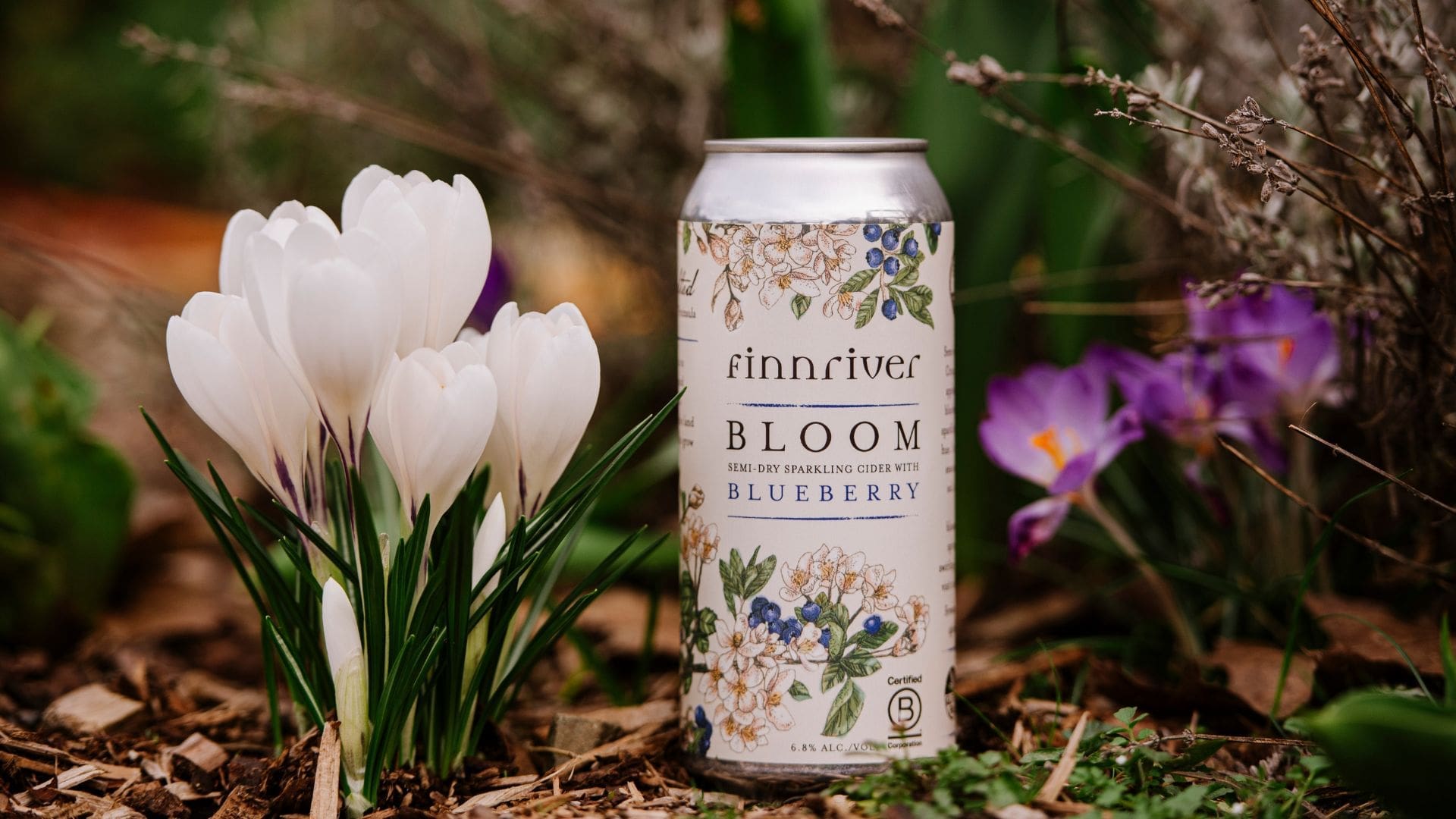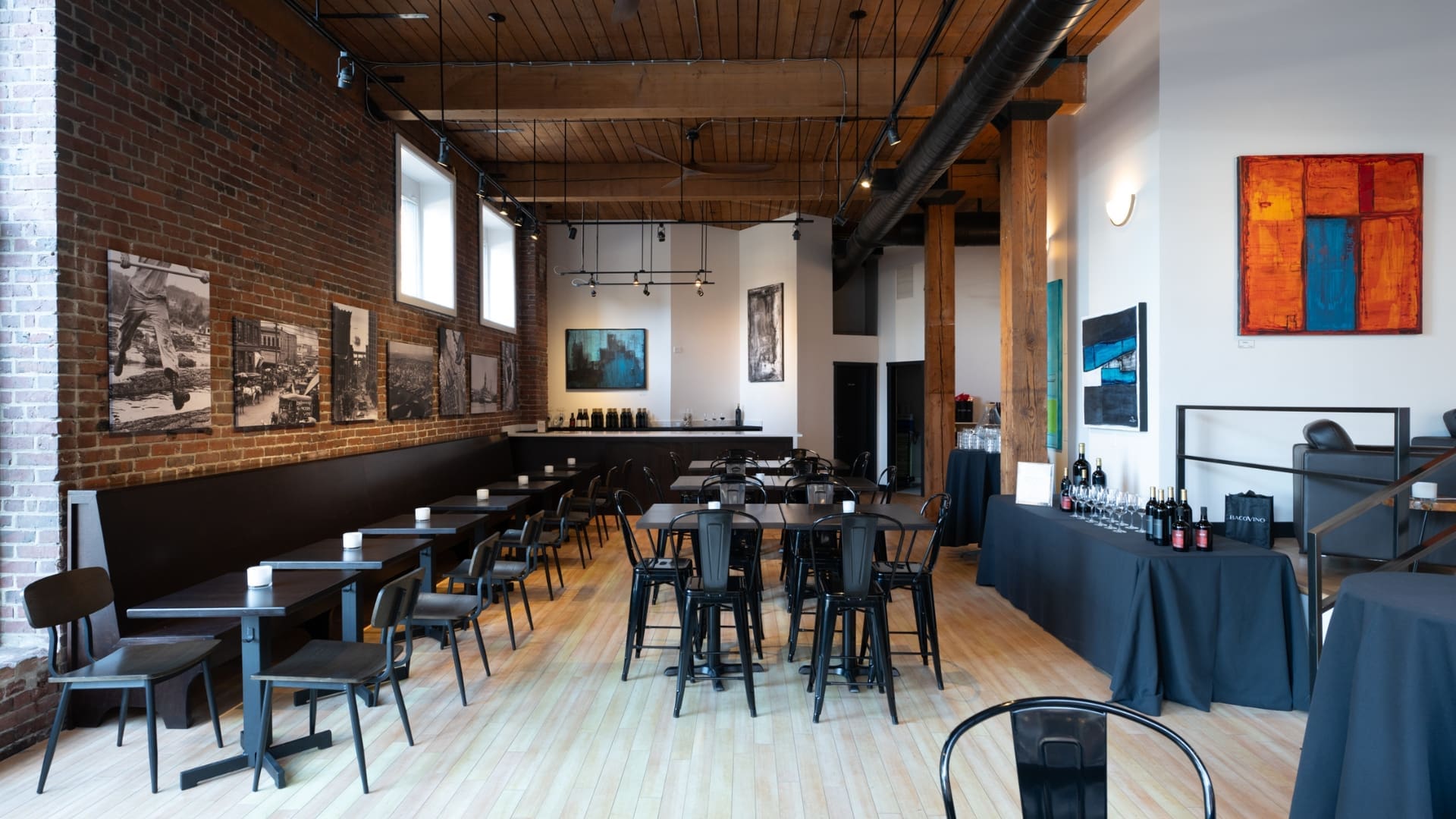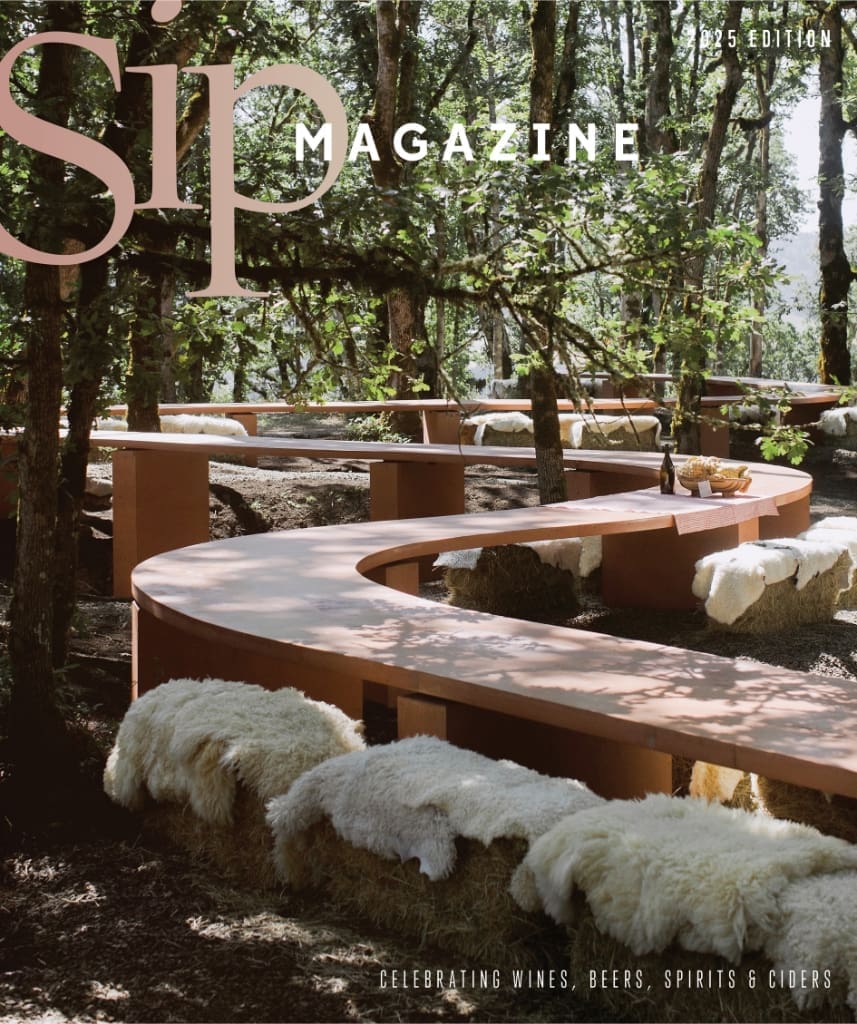In 2017, Pennsylvania-based Threadbare Cider + Mead emerged as a creative experiment at the iconic Wigle Whiskey, its sister company. Think fine, expressive craft ciders and meads using local apples and honey. The Ciderhouse, located in Pittsburgh’s North Side, boasts a cozy tasting room, a spacious cider garden patio perfect for bikes and dogs, and a kitchen that crafts sourdough and gluten-free pizzas with seasonal ingredients. Not to mention over a dozen house-made ciders, complemented by local beers and craft cocktails at their cider bar.
What went into the making of what is now one of western Pennsylvania’s most distinct and beloved cideries? We had a conversation with Brian Bolzan, head cidermaker and head of production at Threadbare Cider + Mead to find out.
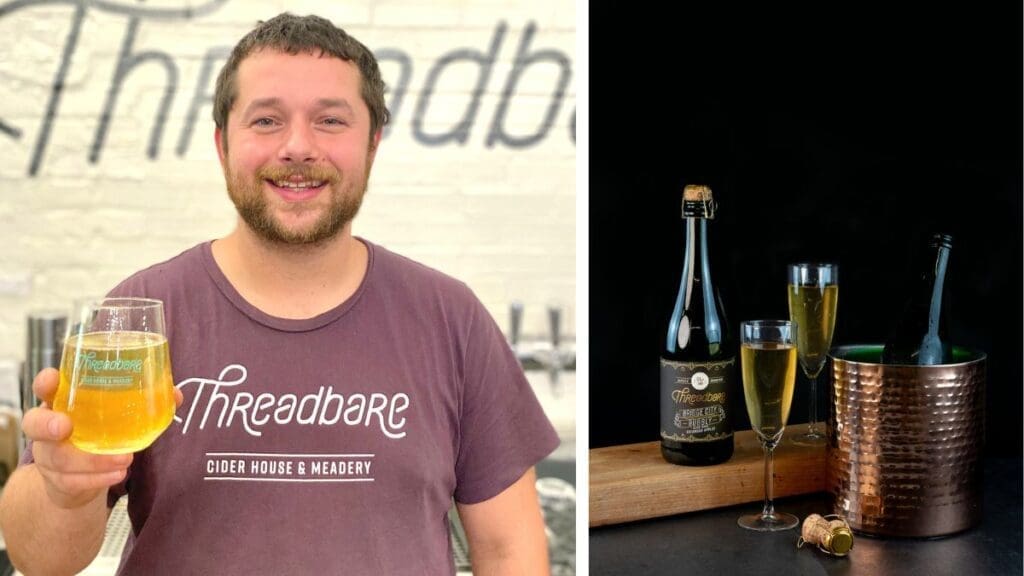
The Genesis
Threadbare Cider’s story begins in 2017, a culmination of years of experimentation with cider and apple-based distillations at Wigle Whiskey. “Threadbare grew from exploring the roots of the Johnny Appleseed lore and uncovering the strong ties of apple varietal cultivation and cider making in the western Pennsylvania region,” says Bolzan. This exploration ignited a desire for Wigle Whiskey to be part of the American revival of hard cider.
“Threadbare started out making both modern and traditional expressions of cider,” Bolzan adds. “From the beginning, we have sourced apples from family farms right here in our backyard and have been dedicated to helping make cider more accessible for consumers.”
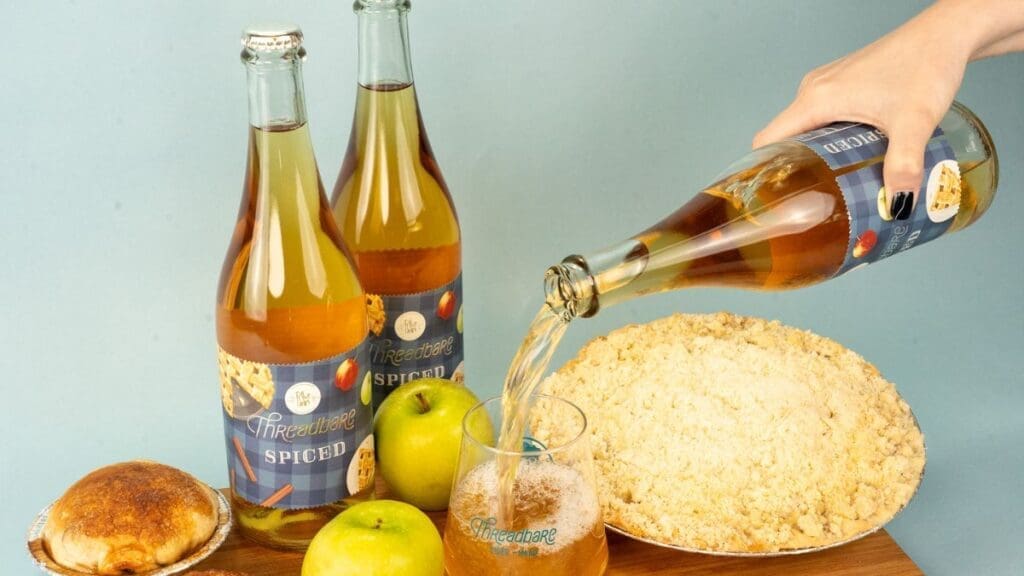
Defining flavors
At the heart of Threadbare’s unique flavors are carefully selected apple varieties. For example, the Allegheny Dry cider is a blend of Grimes Golden, Smokehouse and Stayman Winesap apples, which Bolzan describes as “bursting with tropical white wine characteristics.” Gold Rush apples take center stage in the celebrated Bridge City Bubbly, a fusion of traditional techniques with a modern twist. The flagship Farmhouse brand, a medium-sweet English pub cider, blends Northern Spy, Jonathan and Granny Smith apples. Beyond traditional offerings, Threadbare is known for bold, creative expressions like strawberry rhubarb, elderflower lemonade, bourbon barrel cherry and caramel apple.
“From a fruit-sourcing perspective, our journey has come a long way. When we started, we had little control over the apple blends being an urban cidery relying on grower partners,” says Bolzan. “Now, we have strong relationships with growers like Soergel Orchards, allowing us to select specific varieties for nearly every batch. These growers have planted varieties for us with no secondary market value, such as Redfield, Dabinett, Yarlington Mill, Harrison, Dolgo, and Harry Masters Jersey, leading to new and dynamic expressions with each harvest.”
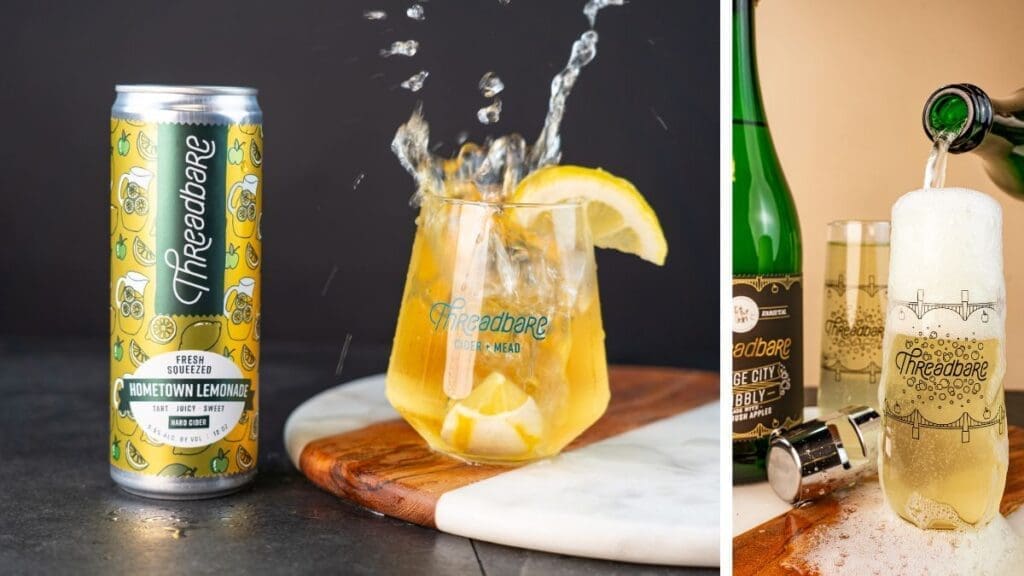
Creative inspiration and market evolution
From classic and nostalgic flavors to trendy concoctions, the cidery explores a spectrum of possibilities. “Threadbare follows both slow and fast innovation cycles,” Bolzan says. “Both methods have yielded amazing results and sometimes lead to one-off products that fit a really specific season in our brand. Sometimes a flavor is so classic or trendy that we release a small batch into the market to try it out. We collaborate with excellent wholesale partners, enabling us to try new concepts with drinkers at low risk. For other products, we prefer an intentional stage-gate development approach involving discovery, focus groups, market analysis, and launch.”
Staying in tune with changing consumer preferences is key. Threadbare’s team, with their collective palette, draws inspiration from everywhere — even the pizza kitchen and tasting rooms on-site. They value external opinions, making sure they’re not just sipping their own cider. Bolzan emphasizes the importance of collective input. “On our small and tight-knit team, we have a collective palate and viewpoint that new ideas/inspiration can come from anywhere and anyone,” he says.
Despite such analysis, Threadbare still had challenges bringing products to market. “We historically marketed our cider like wine in Pennsylvania state-controlled stores,” Bolzan recalls. However, the cidery soon found that local residents more closely aligned cider with beer. That adjustment proved pivotal. “This year we started selling our cider in beer channels and had an overwhelmingly positive response.”
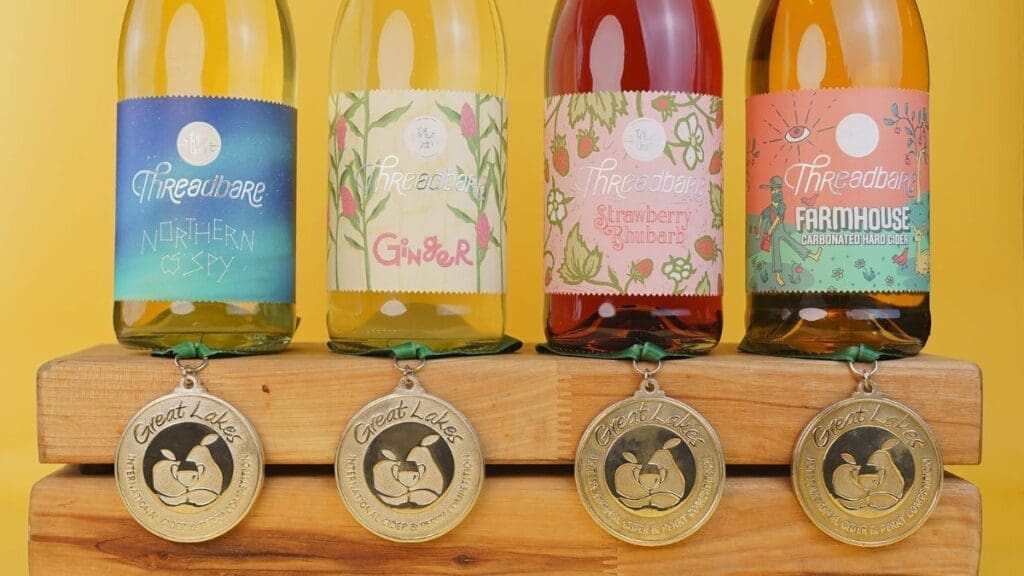
A sneak peek into the future
Looking ahead, Threadbare remains dedicated to innovation. “Right now, we’re working on a Mango Mimosa cider, trialing a Hibiscus Ginger Mule cider, barreling Imperial Peach Bourbon Barrel Cider for a spring release, refining and aging an Albemarle — Newtown depending on who you ask — Pippin cider,” Bolzan says. “[We are also] working on branding a vintage version of our Bridge City Bubbly that we’ve cellared for multiple years on lees, and collaborating on a Passionfruit Pippin cider with the Chicago-based Cider Soms for the Barrel and Flow festival held here in Pittsburgh, to name a few.”

